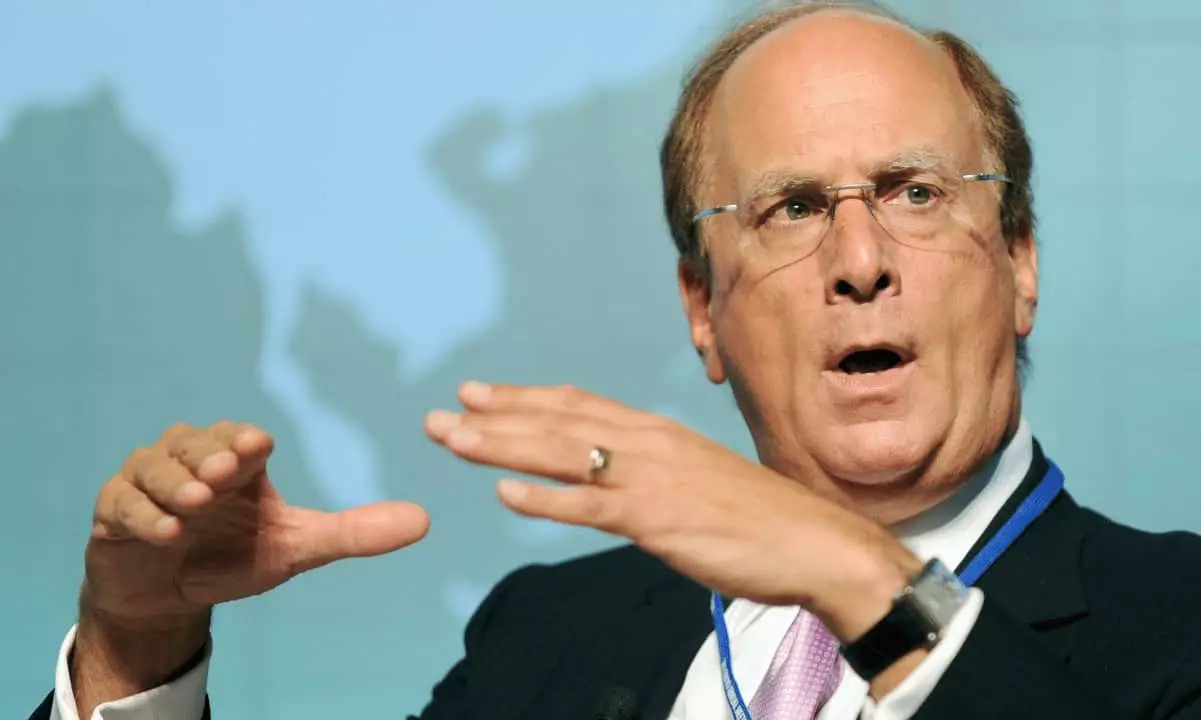In a notable shift within the investment landscape, Larry Fink, the CEO of BlackRock, has labeled Bitcoin as a legitimate asset class, likening its investment potential to that of gold. This declaration from Fink during a recent earnings call sheds light on the evolving perception of cryptocurrencies within the financial world, indicating a pivotal transformation in investor attitudes. Historically viewed with skepticism, Bitcoin’s ascent to recognition as a viable investment option marks a significant moment for the broader acceptance of digital assets.
Fink articulated that BlackRock considers Bitcoin a distinct class of assets, one that could serve as a viable alternative to traditional commodities, particularly gold. This perspective illustrates a broader institutional acknowledgment of cryptocurrency’s place in the investment hierarchy. The recognition of Bitcoin as an alternative asset could pave the way for increased institutional investments, as entities like BlackRock start to explore allocation strategies with global partners. As institutions begin to regard cryptocurrencies not just as speculative instruments but as credible additions to diversified portfolios, the future of digital assets appears increasingly secure.
An essential component of Fink’s analysis revolves around the importance of liquidity and transparency in the crypto market. He argued that the growth and evolution of digital assets will extend beyond mere regulatory frameworks. By emphasizing that a market’s health correlates with its liquidity and transparent operations, Fink provides insight into the key drivers that may influence Bitcoin’s trajectory. The comparison to the $11 trillion mortgage market illustrates how nascent sectors can evolve with improved data and market analysis, reinforcing the necessity of robust analytics in fostering confidence among investors.
Fink’s comments did not limit themselves to Bitcoin. He also delved into the digitization of national currencies, citing examples from countries like India and Brazil that have embraced this shift. The prospect of a digital U.S. dollar could further legitimize cryptocurrencies, promoting broader acceptance among various demographics. This move toward digital currency is heralded as a stride toward modernization of finance, echoing sentiments that many believe are imperative for the future financial ecosystem.
A surge in spot Bitcoin ETF inflows has coincided with BlackRock’s strategic positioning in the market. October 14 saw considerable inflows for spot Bitcoin ETFs, with BlackRock’s own IBIT ETF experiencing substantial interest. As data revealed $555.9 million in new inflows for these financial products, it reinforced BlackRock’s influence in the crypto sector, showcasing how institutional participation can invigorate the cryptocurrency marketplace. The company’s successful launches of Bitcoin and Ethereum ETFs have not only propelled asset prices but also reaffirmed BlackRock’s pioneering role in the digital asset space.
Looking Ahead: BlackRock’s Influence on Cryptocurrencies
Larry Fink’s remarks encapsulate a transformative moment for cryptocurrencies, positioning Bitcoin as a significant player within the financial ecosystem. As BlackRock continues to explore digital assets and their integration into traditional finance, the implications of their acceptance could reshape investment strategies worldwide. With a focus on liquidity, transparency, and the potential for regulated national digital currencies, the trajectory of Bitcoin and its peers will be closely watched by market participants, potentially heralding a new era for blockchain technology and digital assets.

